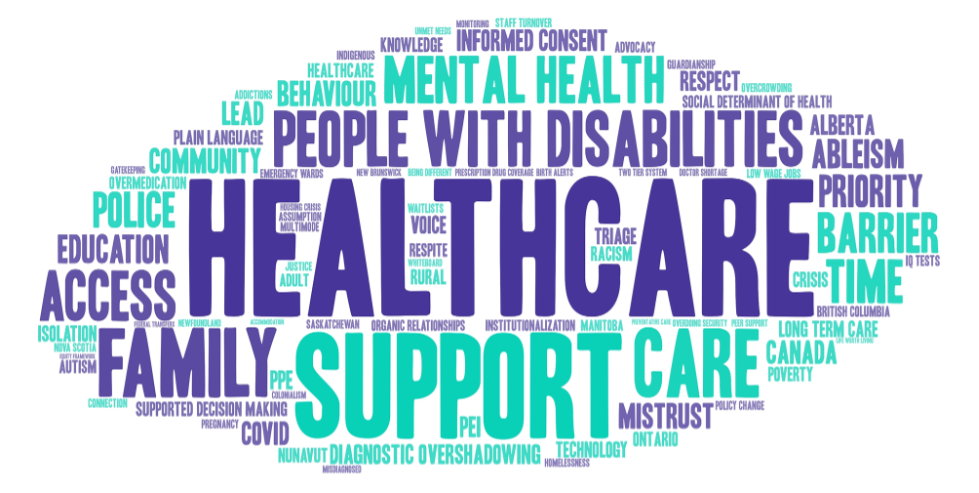Selfadvocatenet.com in support of world health day 2022 on April 7th

What we need to do is stay healthy eat proper food clean the environment around us and to people with disabilities needs are important diseases like covid 19 has changed our world get out walk, bike and play sports and stay active.
The theme for World Health Day 2022 is Our Planet, Our Health.
What is World Health Day
WORLD HEALTH DAY 2022: April 7 is celebrated and observed as World Health Day. The day is celebrated annually in accordance with the World Health Organization’s aim to discuss health-related issues and to draw attention to specific health issues concerning people across the world. The first World Health Day was celebrated and observed in 1950, after 7 April was set aside as a designated date to celebrate the creation of the World Health Organization in 1948 in the First Health Assembly. The day thereby marks the anniversary of WHO after it was established in 1948.
Statement by the Prime Minister on World Health Day

“Today, we celebrate World Health Day and the founding of the World Health Organization (WHO). This year’s theme – ‘Our planet, our health’ – reminds us that our health and well-being is fundamentally connected to the health of our planet. The crises of climate change and rapid biodiversity loss are health crises too.
“Taking real action to confront the climate crisis and protect our environment will deliver clean air and clean water for Canadians – as well as their associated health benefits – now and into the future.
“Canadians are seeing the impacts of climate change in their communities right across the country through wildfires, floods, drought and other extreme weather events. These disasters threaten our air quality, our supply of safe, clean water, and impact our food safety and security.
“Climate change is also a driver of infectious disease spread, such as Lyme disease, which has become more prominent in Canada as blacklegged ticks move farther north as the climate warms. Climate-related disasters directly affect people’s mental health, particularly amidst the COVID-19 pandemic, and intensify the anxiety, grief, and trauma that they experience.
“The Government of Canada is taking real action to confront the climate crisis and adapt to its impacts. Just last week, we released the 2030 Emissions Reduction Plan: Canada’s Next Steps to Clean Air and a Strong Economy, an ambitious and achievable roadmap to reach our climate target of cutting emissions by at least 40 per cent below 2005 levels by 2030, and put us on track toward achieving net-zero emissions by 2050. By the end of the year, our government will deliver Canada’s first-ever National Adaptation Strategy, in collaboration with partners across the country – including provincial, territorial, and municipal governments and Indigenous Peoples. Together, these actions will fight climate change, protect Canadians and our communities from its impacts, and deliver better health outcomes for everyone.
“As we have seen in recent years, global health crises like the pandemic and climate change affect us all. By continuing to take real action on climate change, we will deliver clean air, clean water, and a healthy environment for generations to come.”
Go to World Health Organization for more on this event below click on the picture
Inclusion Canada headline issues we face with disabilities on World Health Day
Today is World Health Day. The World Health Organization is asking people and governments all over the world to take action toward becoming Well-Being Societies.
Well-Being Societies prioritize human well-being, equity, and ecological sustainability. At Inclusion Canada, we’re thinking about how people with an intellectual disability and their families can be included in this vision of a #HealthierTomorrow.

Inclusive Well-Being Societies must be accessible:
Inclusion Canada recently hosted a roundtable on Access to Healthcare. We wanted to know more about how we can improve access to healthcare for people with intellectual disabilities and their families across the country.
We heard about:
- Waitlists and gaps in support,
- The harsh impact of the COVID-19 pandemic,
- The importance of informed consent and supported decision making,
- Ableism in the healthcare system,
- Overmedication and diagnostic overshadowing,
- Other barriers to mental health care, and
- Social determinants of health being precarious.
Access to healthcare is key for building a #HealthierTomorrow that is inclusive of people with intellectual disabilities.
Inclusive Well-Being Societies must leave nobody behind:
Climate change impacts us all, but not equally. For example, we know that surging food prices are in part caused by changing climates. This is hard on people with intellectual disabilities living in poverty. Too many people with disabilities are housing insecure, or remain institutionalized in congregate settings. Heat waves or cold fronts are experienced differently by people who do not have air conditioning or reliable heat in their space.
We know that when disaster strikes, people with disabilities are more likely to be left behind, because of poor planning, barriers to migration, inaccessibility, and gaps in support. There is also the possibility that during climate crises people with disabilities will not be prioritized for limited resources.
To build a #HealthierTomorrow where nobody is left behind, people with intellectual disabilities must be included in and informed of climate risk plans and policies.
Inclusive Well-Being Societies must be safe and free from discrimination:
Doctors are often the people we turn to when we need help. But what happens when a person is made eligible for an assisted death when they need help – all because they have a disability?
We recently developed a document called Must Medical Practitioners Refer for Medical Assistance in Dying (MAiD) Under Canada’s Newly Amended Assisted Dying Legislation? A Statement of Principle Grounded in Disability Rights.
In it, we outline that all people need to be safe to share their suffering so that they can get the help that they need to heal and thrive. When a person who is not dying wants to die, medical practitioners should be permitted to compassionately push back and find another way to end suffering, even if the person wanting to die has a disability. Medical practitioners should not be punished for not being willing to discriminate against people with disabilities.
Duty-to-refer standards make this challenging in some provinces. The duty-to-refer requires medical professionals to refer a person for a MAiD assessment even if they do not recommend MAiD for that person at that time.
To build a #HealthierTomorrow, healthcare needs to be safe for everyone, and free from discrimination.
This World Health Day, Canada, let’s envision Inclusive Well-Being Societies and let’s take action.
This on Inclusion Canada Website go to the link here

